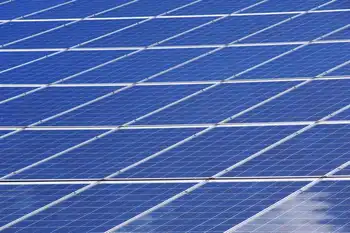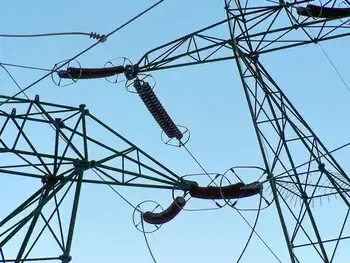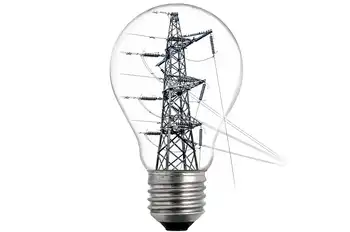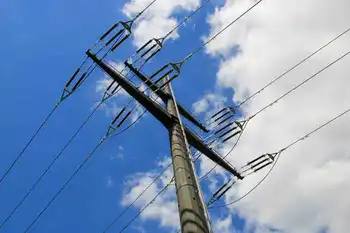EU Electricity Market Reform seeks to curb gas-driven volatility by expanding CfDs and PPAs, decoupling power from gas, and aligning consumer bills with low-cost renewables and nuclear, as Brussels advances market redesign.
Key Points
An EU plan to curb price spikes by expanding long-term contracts and tying bills to cheap renewables.
✅ Expands CfDs and PPAs to lock in predictable power prices
✅ Aims to decouple bills from gas-driven wholesale volatility
✅ Seeks investment certainty for renewables, nuclear, and grids
European Union energy ministers meet on Monday to debate upcoming power market reforms. Brussels is set to propose the revamp next month, but already countries are split over how to "fix" the energy system - or whether it needs fixing at all.
Here's what you need to know.
POST-CRISIS CHANGES
The European Commission pledged last year to reform the EU's electricity market rules, after record-high gas prices - caused by cuts to Russian gas flows - sent power prices soaring during an energy crisis for European companies and citizens.
The aim is to reform the electricity market to shield consumer energy bills from short-term swings in fossil fuel prices, and make sure that Europe's growing share of low-cost renewable electricity translates into lower prices, even though rolling back electricity prices poses challenges for policymakers.
Currently, power prices in Europe are set by the running cost of the plant that supplies the final chunk of power needed to meet overall demand. Often, that is a gas plant, so gas price spikes can send electricity prices soaring.
EU countries disagree on how far the reforms should go.
Spain, France and Greece are among those seeking a deep reform.
In a document shared with EU countries, seen by Reuters, Spain said the reforms should help national regulators to sign more long-term contracts with electricity generators to pay a fixed price for their power.
Nuclear and renewable energy producers, for example, would receive a "contract for difference" (CfD) from the government to provide power during their lifespan - potentially decades - at a stable price that reflects their average cost of production.
Similarly, France suggests, as part of a new electricity pricing scheme, requiring energy suppliers to sign long-term, fixed-price contracts with power generators - either through a CfD, or a private Power Purchase Agreement (PPA) between the parties.
French officials say this would give the power plant owner predictable revenue, while enabling consumers to have part of their energy bill comprised of this more stable price.
Germany, Denmark, Latvia and four other countries oppose a deep reform, and, as nine EU countries oppose reforms overall, have warned the EU against a "crisis mode" overhaul of a complex system that has taken decades to develop.
They say Europe's existing power market is functioning well, and has fostered years of lower power prices, supported renewable energy and helped avoid energy shortages.
Those countries support only limited tweaks, such as making it easier for consumers to choose between fluctuating and fixed-price power contracts.
'DECOUPLE' PRICES?
The Commission initially pitched the reform as a chance to "decouple" gas and power prices in Europe, suggesting a redesign of the current system of setting power prices. But EU officials say Brussels now appears to be leaning towards more modest changes.
A public consultation on the reforms last month steered clear of a deep energy market intervention. Rather, it suggested expanding Europe's use of long-term contracts, outlining a plan for more fixed-price contracts that provide power plants with a fixed price for their electricity, like CfDs or PPAs.
The Commission said this could be done by setting EU-wide rules for CfDs and letting countries voluntarily use them, or require new state-funded power plants to sign CfDs. The consultation mooted the idea of forcing existing power plants to sign CfDs, but said this could deter much-needed investments in renewable energy.
RISKS, REWARDS
Pro-reform countries like Spain say a revamped power market will bring down energy prices for consumers, by matching their bills more closely with the true cost of producing lower-carbon electricity.
France says the aim is to secure investment in low-carbon energy including renewables, and nuclear plants like those Paris plans to build. It also says lowering power prices should be part of Europe's response to massive industrial subsidies in the United States and China - by helping European firms keep a competitive edge.
But sceptics warn that drastic changes to the market could knock confidence among investors, putting at risk the hundreds of billions of euros in renewable energy investments the EU says are needed to quit Russian fossil fuels under its plan to dump Russian energy and meet climate goals.
Energy companies including Engie (ENGIE.PA), Orsted (ORSTED.CO) and Iberdrola (IBE.MC) have said making CfDs mandatory or imposing them retroactively on existing power plants could deter investment and trigger litigation from energy companies.
POLITICAL DEBATE
EU countries' energy ministers discuss the reforms on Monday, before formal negotiations begin.
The Commission, which drafts EU laws, plans to propose the reforms on Mar. 14. After that, EU countries and lawmakers negotiate the final law, which must win majority support from European Parliament lawmakers and a reinforced majority of at least 15 countries.
Negotiations on major EU legislation often take more than a year, but some countries are pushing for a fast-tracked deal. France wants the law to be finished this year.
That has already hit resistance from countries like Germany, highlighting a France-Germany tussle over the scope of reform as they say deeper changes cannot be rushed through, and they would need an "in-depth impact assessment" - something the Commission's upcoming proposal is not expected to include, because it has been drafted so quickly.
The timeline is further complicated by European Parliament elections in 2024. That has raised concerns in reform-hungry states that failure to strike a deal before the election could significantly delay the reforms, if negotiations have to pause until a new EU parliament is elected.
Related News












